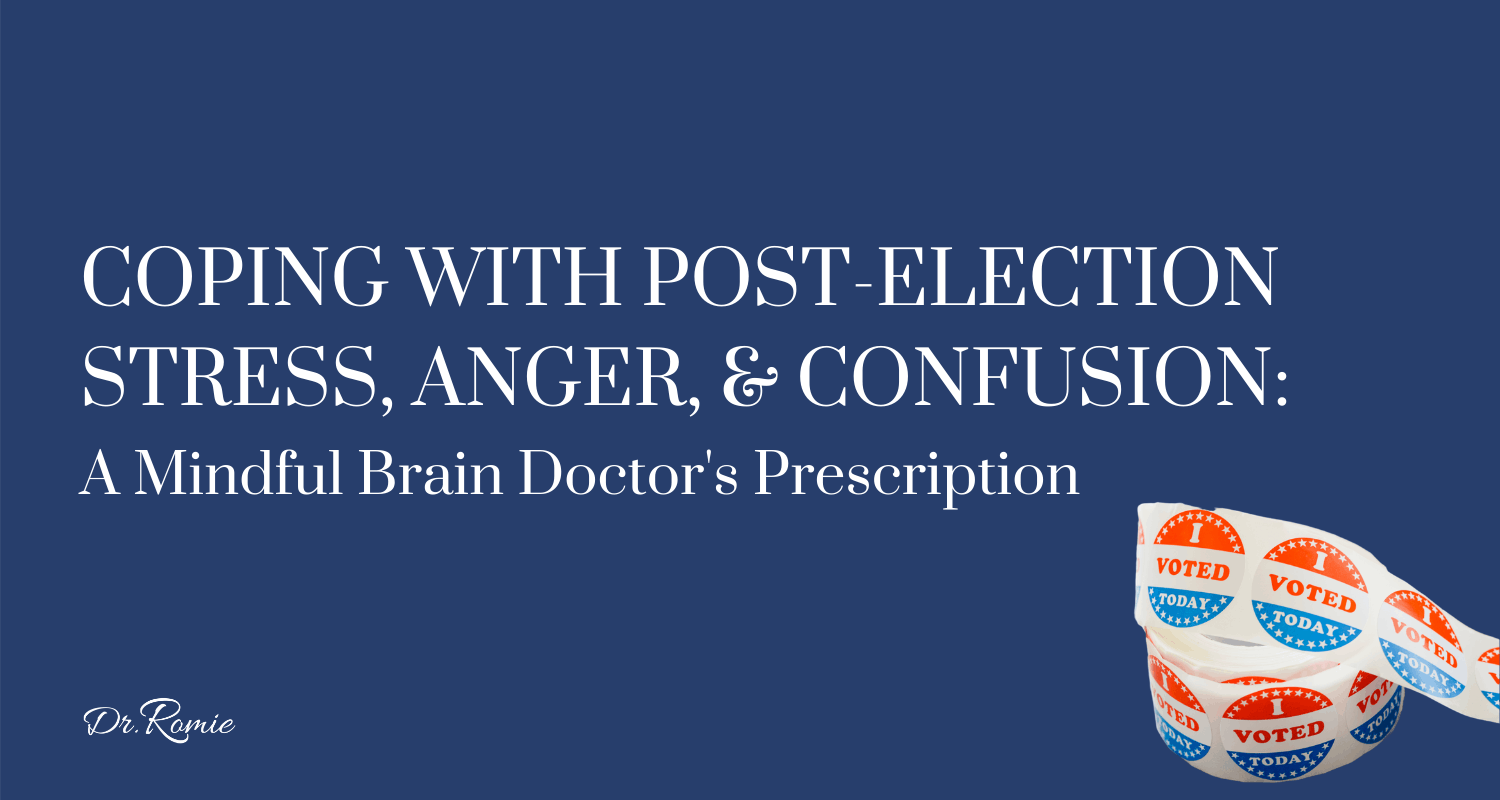Confused, angry, or frustrated? Has your stress levels and sanity reached a tipping point?
At this point, 2020 has tested our abilities to handle stress and anxiety with a pandemic, economic crisis, and now election season. As of this morning, there is not an officially declared winner in the presidential election.
How do you focus on your relationships, work, and sleep without losing your sanity?
Practicing meditation and mindfulness for a decade has taught me one lesson: when the outside world is out of control, we must look within first.
I’m here to talk about how both brain science and mindfulness can help us regardless of the election outcome.
WHY DOES ELECTION STRESS DISORDER FEEL WORSE NOW THAN FOUR YEARS AGO?
Election stress disorder is more severe than run of the mill stress. Looking at research from the 2016 presidential election, we know that mental health will decline if your local or national candidate loses. Regardless of your party affiliation, we all suffer post-traumatic stress disorder from the last presidential election in 2016 in the United States.
Every person and family has been negatively impacted by COVID19, job losses, discussions on race relations, and economic uncertainty.
You and you alone are in control of how you will react to the news around you. Circumstances cannot dictate whether you keep sane. This concept is known as building emotional resilience, and that is the theme of 2020.
PROTECT INSTEAD OF PROJECTING YOUR NEGATIVE EMOTIONS
We all react to stress in our mental and physical health differently, whether it is anxiety or depression, but I am going to ask you to do the following.
- Sit with your anxiety and ask, “what lesson do you need to learn from this feeling or emotion?”
- The parking lot theory – you can blame the reckless and speeding driver for who their political choices are for nearly hitting pedestrians, or you can face your feelings. When you face your feelings, you realize you were scared they would hurt children or hit another car.
- Stop shifting the blame of circumstances on one political party and take control of your feelings. You control your emotions regardless of the outcome of the election results. The key is compassion for yourself and compassion for others.
SELF-COMPASSION TO HEAL ANGER, STRESS, WORRY
Does self-compassion sound a little too woo-woo? In #RomieRealTalk terms, it means learning to monitor for the negative thoughts and actions we have towards ourselves and replace them with gentle, friendlier, and positive thinking.
For instance, if you are telling yourself, “you are such a freak eating popcorn for dinner, you’ll get even more fat and ugly.” Pause and replace the thought with self-compassion, “I will allow myself the luxury of taking a break from cooking and eat comfort food tonight. I eat popcorn with joy.” Speak to yourself as you would your best friend, pet, or child.
CREATE A COMPASSION ACTION PLAN
- Compassion Action Plan is a plan for yourself to do comforting and kind actions for your thoughts, mental health, and physical health. By calming our thoughts, minds, and bodies, we can reduce stress and panic that have hijacked our sanity.
- Take control: Schedule how many times you will check the news and take breaks from work today.
- Monitor your thoughts and repeat kind words to yourself, be gentle if you had comfort food.
- For your mental health, take 3 minutes to step away from work or school and do an activity that makes you smile or feel joy- such as dancing to 80s music.
- For your physical health, trying to sleep may feel impossible, so keep your body moving all day. Go for a walk, do push-ups, or extra chores to keep your hands and mind busy. All these little compassion action steps bring calm to our mind, body, and spirit.
REFERENCES:
- Election Stress Disorder: https://abc7news.com/election-stress-disorder-syndrome-mental-health-2020/7589108/
- Changes in mental health following the presidential election: https://link.springer.com/article/10.1007/s11606-020-06328-6
